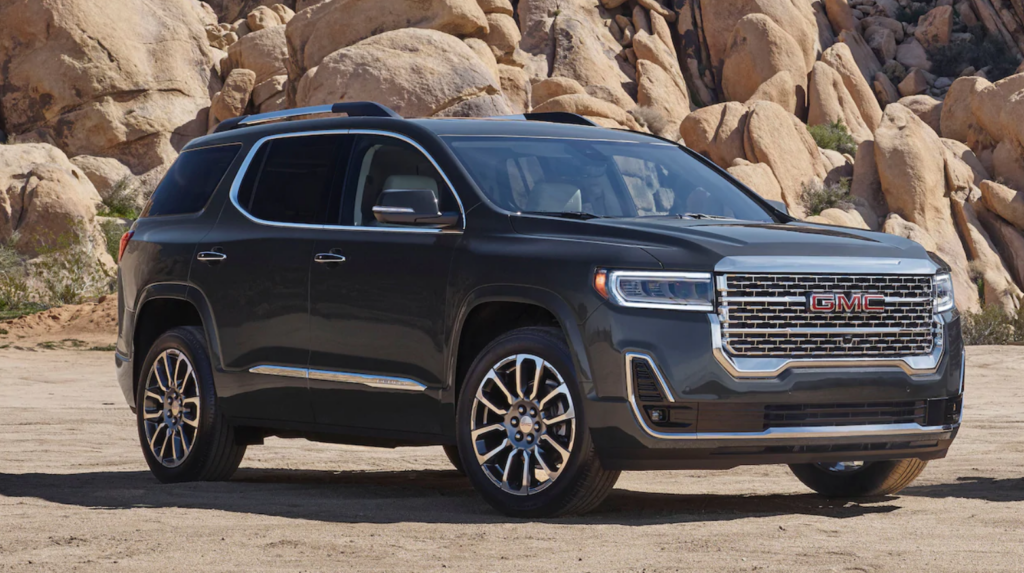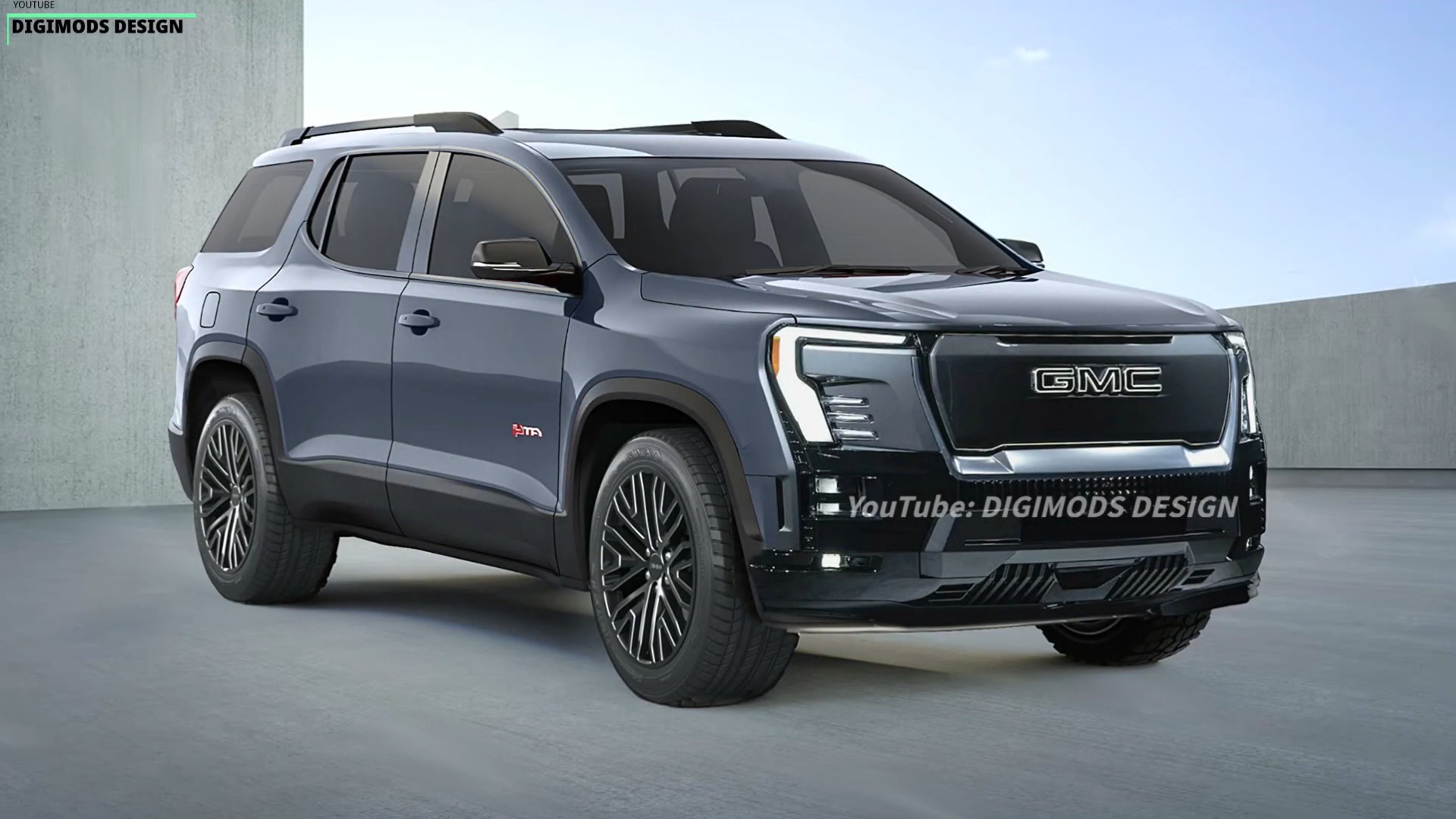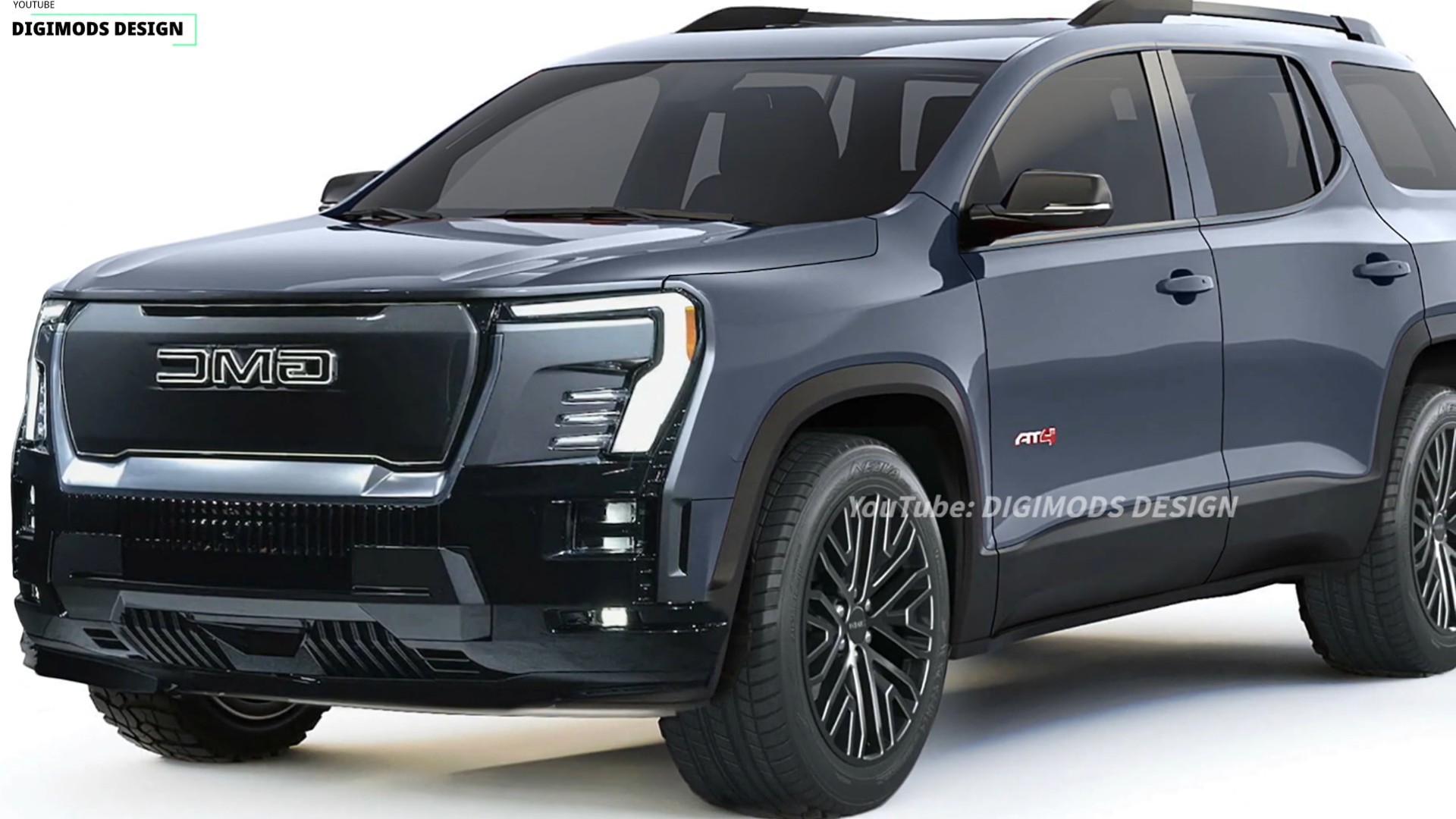Understanding the Importance of Weight in the 2025 GMC Acadia
Understanding the Importance of Weight in the 2025 GMC Acadia
Introduction
With great pleasure, we will explore the intriguing topic related to Understanding the Importance of Weight in the 2025 GMC Acadia. Let’s weave interesting information and offer fresh perspectives to the readers.
Table of Content

Understanding the Importance of Weight in the 2025 GMC Acadia
The 2025 GMC Acadia, like any vehicle, carries a significant weight that impacts its performance, fuel efficiency, and handling. While the precise weight specifications for the 2025 model are not yet available, understanding the factors influencing vehicle weight and its implications can provide valuable insight into the Acadia’s capabilities.
Factors Influencing Vehicle Weight
Several factors contribute to a vehicle’s overall weight, including:
- Chassis and Body: The fundamental structure of the vehicle, including the frame, body panels, and suspension components, comprises a significant portion of the weight.
- Engine and Transmission: The powertrain, encompassing the engine, transmission, and associated components, adds considerable weight.
- Interior Features: Luxury amenities such as leather upholstery, advanced infotainment systems, and power-adjustable seats can increase weight.
- Safety Features: Modern safety systems, including airbags, electronic stability control, and advanced driver-assistance systems, add weight while enhancing safety.
- Fuel Tank and Fuel: The fuel tank capacity and the weight of the fuel itself contribute to the overall weight.
- Passengers and Cargo: The weight of passengers and cargo naturally adds to the vehicle’s overall weight.
Impact of Weight on Vehicle Performance
Vehicle weight plays a crucial role in various aspects of performance:
- Acceleration and Braking: A heavier vehicle requires more power to accelerate and longer distances to brake effectively.
- Fuel Efficiency: Increased weight necessitates more energy to move the vehicle, resulting in lower fuel economy.
- Handling and Stability: A heavier vehicle can experience increased body roll in corners and potentially slower steering response.
- Ride Comfort: Weight can affect suspension performance, potentially leading to a harsher ride.
Importance of Weight Optimization
Automakers strive to optimize vehicle weight through various strategies:
- Material Selection: Utilizing lighter materials like aluminum and high-strength steel in the chassis and body can reduce weight without compromising structural integrity.
- Engine Downsizing: Smaller, more efficient engines can offer similar power output with reduced weight.
- Lightweight Components: Employing lightweight materials in components such as wheels, brakes, and suspension parts can contribute to overall weight reduction.
- Aerodynamic Design: Streamlined body designs can improve fuel efficiency by reducing air resistance, indirectly contributing to weight reduction.
Benefits of Reduced Weight
Optimizing weight offers numerous benefits:
- Improved Fuel Economy: Lower weight results in better fuel efficiency, saving money on fuel costs and reducing environmental impact.
- Enhanced Performance: Lighter vehicles accelerate faster, brake more effectively, and handle more nimbly.
- Increased Durability: Reduced stress on components due to lower weight can improve durability and longevity.
- Reduced Emissions: Improved fuel efficiency contributes to lower emissions, aligning with environmental sustainability goals.
FAQs about the 2025 GMC Acadia Weight
Q: What is the expected weight range for the 2025 GMC Acadia?
A: Precise weight specifications for the 2025 model are not yet available. However, based on previous model years, the Acadia’s weight is likely to fall within a range of approximately 4,000 to 4,500 pounds, depending on the trim level, engine, and optional features.
Q: How does the 2025 Acadia’s weight compare to its competitors?
A: The 2025 Acadia’s weight is expected to be competitive with other mid-size SUVs in the market. Comparing its weight to competitors like the Honda Pilot, Toyota Highlander, and Ford Explorer will provide a better understanding of its relative performance.
Q: What are the implications of the 2025 Acadia’s weight for its fuel economy?
A: The Acadia’s weight will influence its fuel efficiency. A heavier vehicle generally consumes more fuel, so a lower weight would contribute to better fuel economy.
Q: How does the 2025 Acadia’s weight impact its handling and stability?
A: A heavier vehicle can experience increased body roll in corners and potentially slower steering response. However, advanced suspension systems and electronic stability control can mitigate these effects.
Tips for Understanding the Impact of Weight
- Research the specifications: When considering the 2025 Acadia, review the official specifications provided by GMC to understand the vehicle’s weight and compare it to other models.
- Consider trim levels and options: Different trim levels and optional features can significantly impact weight. Factor in these considerations when evaluating the Acadia’s overall weight.
- Test drive: A test drive allows you to experience the vehicle’s handling and performance firsthand, providing insight into how the weight affects its driving dynamics.
Conclusion
The 2025 GMC Acadia’s weight is an important factor influencing its performance, fuel efficiency, and handling. Understanding the factors contributing to vehicle weight and the impact of weight optimization strategies can provide valuable insight into the Acadia’s capabilities. By considering these factors, potential buyers can make informed decisions about the 2025 GMC Acadia, aligning their choices with their specific needs and priorities.







Closure
Thus, we hope this article has provided valuable insights into Understanding the Importance of Weight in the 2025 GMC Acadia. We thank you for taking the time to read this article. See you in our next article!